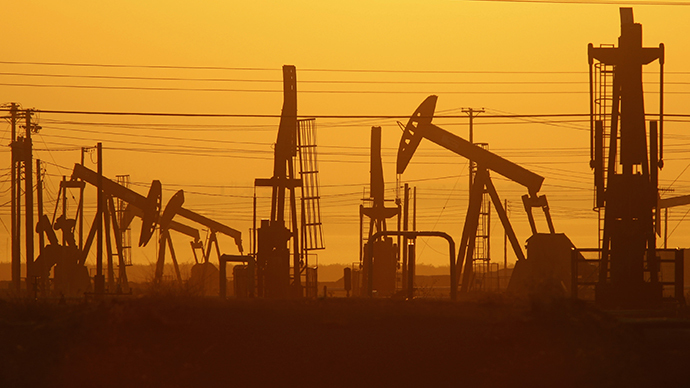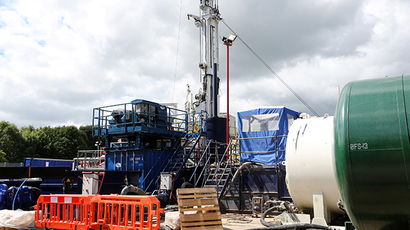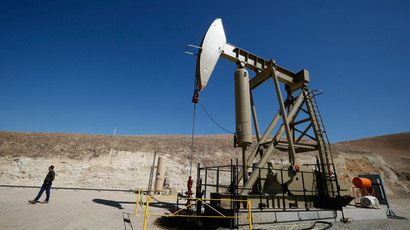Fracking banned in Beverly Hills – a first for California

Celebrity-stacked Beverly Hills has become the first municipality in California to ban the practice of hydraulic fracking, or fracking, along with acidization and other extreme well stimulation techniques.
The initial push for legislation happened last month and was confirmed by Tuesday’s city council vote, which was unanimous. The law will come into effect June 6, Reuters reported.
Speaking to the news agency just before the final vote was in, council spokesperson Therese Kosterman explained the council’s decision by saying that “industrial processes such as mining and oil drilling really [are] not appropriate in Beverly Hills.”
Although Beverly Hills itself has no ongoing fracking operations, nearby towns in Los Angeles County have quite a few. And despite the veneer of luxury and the jet-set lifestyle witnessed in the trendy area, the oil industry seems to be just as alive there as in other, more marginalized cities and towns in the United States. Even Beverly Hills High School couldn’t do anything to curb oil drilling for decades, although there was later a vote in 2011 that pledged to end the practice by 2016.
Fracking is the process of blasting water, chemicals and sand into the earth to break up rocks to free oil and natural gas. The technique’s detrimental effects on both the Earth and human health have been documented in multiple studies.
In particular, environmentalists say chemicals used in the process pollute underground water supplies and may cause earthquakes – something of a red flag for California, which lies in a seismically active zone.
Moreover, a correlation between distance from the nearest fracking well and the presence and severity of the condition in future newborns was found. Further to this, scientists at the University of Missouri and the USGS have discovered in late 2013 that the pollution caused by fracking-related chemicals also causes serious hormonal disorders.
Last year, the state approved its first regulation, stipulating that companies should now obtain permits for a number of techniques used to dissolve shale rock.
The wider city of LA also is looking to suspend the practice altogether. This has already been done on the east coast, in New York; while the state of Illinois has imposed a set of regulations, although the practice is still allowed.
However, not everyone is so enthusiastic about the new law, as it threatens to greatly reduce California’s energy independence, and as a result affect prices. Dave Quast, of the California Independent Petroleum Association, believes that “a greater reliance on expensive imported fuel sources would put Southern California jobs at risk and could result in higher prices at the pump.”
But environmentalists, who insist that there is no way to safely frack, seem to be slowly but surely gaining the upper hand.
“This is not a ‘not in my backyard issue’– it should not be in anyone’s back yard,” Beverly Hills councilmember John Mirsch said in a press release from advocacy group Food and Water Watch (FWW). “And we also need to think long-term, even if our city is not a center of drilling – injecting millions of gallons of water and chemicals at high pressure into the earth can't be good.”













